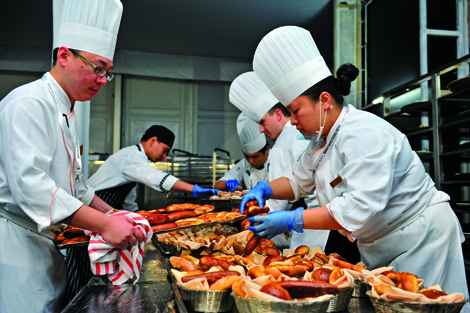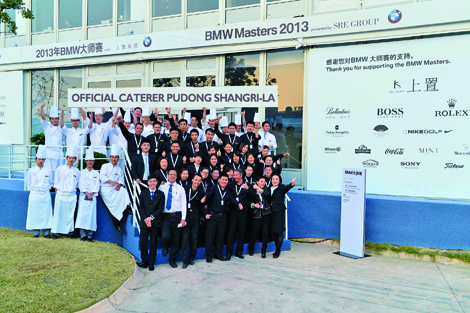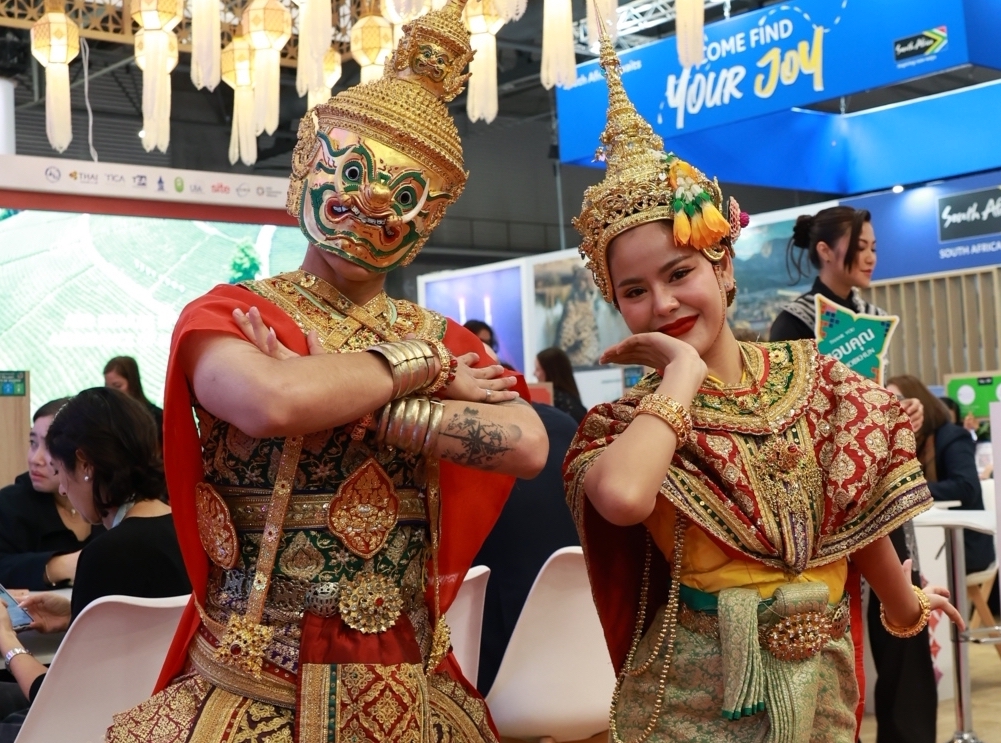The BMW Masters is a highlight in Asia’s sporting calendar, bringing together top international golfers to compete for a US$7-million prize purse. Pudong Shangri-La hosted last year’s hot ticket in hospitality, held at Lake Malaran Golf Club in Shanghai. A monumental feat lay ahead, as staff prepared to serve more than 15,000 meals during the course of the three-day tournament.
Branded as the most prestigious event to date, last year’s BMW Masters marked the opening of the European Tour’s Final Series, attracting over 45,000 people through Lake Malaran’s gates. Thorough training and preparation were crucial to cater to the huge influx of players, VIP guests, media and sponsors, says Ulrich Jablonka, executive chef at the Pudong Shangri-La.
“In the lead-up to the tournament, the catering staff underwent several training sessions, each with a different focus and objective. The team was familiarised with key players, venue and floor plans and given detailed briefs of the run-down. Clarifying responsibilities was essential to ensuring seamless operation.”
During the tournament, meals were sectioned and timetabled according to the event’s participating groups. Three rounds of breakfast were served between 5:30am and 9am, catering first to players and caddies, then staff, media, VIPs and sponsors. Lunch was served in all sections of the course, while catering to the public was ongoing throughout each day.

Having hosted a variety of external events, Pudong Shangri-La is an ideal option for catering an offsite event. But while the hotel is home to the largest banqueting operations in Shanghai, the BMW Masters had the hotel’s manpower and logistics teams out in full force. A unique challenge was the tournament’s outdoor aspect, and meticulous coordination with Lake Malaran’s management ensured that necessary facilities could be catered to. A 300-strong catering team and regular shuttles were enlisted to ferry fresh food, apparatus and servers between the hotel and golf course.
In order to cope with the scale of the event, two kitchens were built from the ground up in unused warehouses on the golf course. Complete with fully functioning gas and water supplies, Jablonka cites the importance of organisation and maintaining standards in offsite constructions. “With the kitchens, our main challenge was to make sure that all the equipment installed met the Shangri-La Food and Safety Standards, and remained efficient enough to cater to all venues on the course. Running the two kitchens simultaneously required detailed planning to ensure that everything
ran smoothly.”
As is the case with any event, strong communication and structure is integral to success. It’s what holds the team together when an emergency strikes or in the case of a last-minute request. Flexibility is also key, says Jablonka, who was faced with the unexpected arrival of 40 VIPs, due within the hour of being told. “In this case, fast responses and consummated solutions were necessary. We quickly set up a special area to receive the new guests and adjustments to the menu were communicated externally with our suppliers as well as with our staff. Teamwork plays a major role in successful execution.”
The climax of the tournament’s catering itinerary was the VIP Gala Dinner, for which the catering staff returned to the comforts of their in-house kitchens. An intricate four-course menu was in store, with more than 250 guests expected. While catering an event onsite poses significantly fewer challenges, transporting dishes between the Pudong Shangri-La’s kitchen and the hotel’s first- and third-floor dining rooms was an interesting obstacle. Without the help of elevators, ensuring the timeliness and efficiency of food delivery was made possible with a team of 30 runners who were responsible for carrying dishes between the two main locations.

In the end, it’s the conservative planning and preparation that makes catering an event of such magnitude a success, notes Jablonka. And the emotions are what carry you through the long hours, making the result of a well-catered event all the more worthwhile. “While there is obviously stress, there’s also fun. The team was anxious to get started and as the week began, so did the long hours. But when you all sit together and recap the day’s achievements, the feeling of success and accomplishment is unforgettable.”


